1. Sir, please tell us a little about yourself sir. How was it growing up?
First, I wish to seize this opportunity to convey my distinguished appreciation and profound gratitude to the founders and promoters of EduTimes for the rare opportunity to be considered worthy of their consultation for a privileged and exclusive interview such as this.
Everywhere in the pages of the rule books of wisdom, knowledge and history of civilization, we encounter a truism: ‘That Education is and remains the most valuable pillar and constructive tool for accelerated and sustainable human development and indeed the dependable key to our collective survivability’.
I was born in Lagos where my education started at the primary school level at St. Paul’s and formed my life experience. I also had my Secondary school in Lagos at St. Finbarrs’ College from 1966 to 1970. It was at St. Finbarrs’ that I started to appreciate the technicalities of things, the science and technology interfaces in global development. Indeed, Finbarrs’ was the acclaimed first technical and grammar school in Nigeria founded by late Reverend Father Dennis Slattery. In Slattery’s school, you really needed to be very vast in knowledge. When I say knowledge, I mean practical knowledge. He would always emphasise it. If it is Biology, you must have a ridge in the farm to study plant life, because all the makeup of human life is biological. If it is technical, you need to design, construct and build a specimen of your concept. If it is architecture, you need to design and construct something related to life-related infrastructure. That is how the education ecosystem was programmed and worked at that time. It would be recalled that Rev. Father Slattery built a technical department by generating a loan totaling £3 million pounds from Europe and Ireland in particular at that time. And that’s on record talking about 1956, £3 million pounds to build the first technical grammar school in Nigeria. Some of the Old boys-students really acted as the resource people to Yaba College of Technology when it was founded and under construction. People like Nwosisi and others who did Architectural Study are reference points. They had the practical experience apart from the theoretical knowledge of curriculum and syllabus. Many of them have gone much further in espousing this knowledge to be able to get through all the issues that people still anticipate as rocket science today. For example, Finbarrs students were involved in helping the churches do their building diagrams and structural design in those days. Finbarrs imbibed in us the need to appreciate techniques, probably not technology, but techniques. Putting the submissions in context, we are talking about Lagos in the 1960s when we were in primary school. You go to school from Monday to Thursday and you go to the Center on Fridays. That was the school educational cycle. You go to vocational Centers for practicals. There were practical education development Centres all over Lagos. If you are in Ebute Meta, you go to the Center in Ebute Metta. If you are in Yaba, you go to the Center in Yaba. If you were in Obalende, you went to a Center there. They had them there. And what did they do in these Centres? They did filing practice. They did Artwork, moulding with mud and all sorts, of course, weaving. In those days, all the brooms we had were woven with dyed ropes at the end. That’s what we did. The practical knowledge in those days encouraged forward-thinking of making-and-doing and influenced many other areas of human development. That knowledge experience model probably made students of those days much more well-rounded and practically grounded.
For example, on Saturdays or even on Weekdays, you go to the swimming pool. There were public swimming pools in Yaba. There were public swimming pools in Onikan stadium. It was a Park and had what they call a love garden. When you had a girlfriend in those days, you went there to take a snapshot. That was how really the ecosystem was working. You have, of course, a school bus allocated to transport students only. It is called ‘Scholly’. Your school ID card grants you access to the school bus. When you look at the whole materials
around you, they were moved by trains to different destinations. Materials like petrochemicals and goods were moved by rail. We never had tankers on the road. All those Petrol Tanks were transported by train. Of course, Private and Community Buses ply the road from Ijora up to Kaduna. Then, of course, you had the luxury of having bicycles on the road. You had the luxury of having fewer cars, but you have motorcycles, good motorcycles that people are proud of and can be used to work. You can ride your cycle from the Medical Center where we used to live to the Racecourse, for example, without being hurt. Then, you tie all these knowledge wares together with the music, the musical lyrics of the people in those days. The influence of the music such as Osadebe, with Olaiya, with Fela Ransome Kuti, Ebenezer, Obey, Sunny Ade and with a lot of all those music especially the messaging content of the music. The philosophy of the music, which for me, is sort of a moving junction within layers of life. When you want to become poetic because we have a lot of libraries in those days, there are a lot of Poets who you can encounter in the libraries. When you put this in layered analytics, then you find out there are multiple moving joints that make the whole. That is the way I grew up before I left the country for Germany in 1972. And of course, you need to do the German language to be able to go to school over there. After the German language, I had to study science, scientific things, and then went to the Gast Hoarer’s Course (required for foreign guests.
2. You got into Information and Communications Technology (ICT) many decades ago, long before it became popular; when most Nigerians aspired to become doctors, engineers and lawyers. What led you to follow the path of ICT?
My dream was to be a pilot as a young lad in Nigeria. I had this uncle who is quite passionate in mentoring youths. He mentors practically. When he talks about aeroplanes, he must take you to the airport. He will say, “I’m taking you to see how people fly from one airport to other places and countries and you must see it physically. There are people like you who are in the cockpit who navigate the Aircraft to fly.” I became so passionate because he was so fond of me – growing up. I remember that once a month, he would take me to a Cocktail dinner. When I say Cocktail dinner, I mean real Cocktail dinner with a bowtie on my neck. When we go out with him, he will say, sit down here and he would teach me table manners! He was so fond of me that the airport visit became my passion. Later, he took me to the breweries. The Nigerian breweries at Iganmu, Lagos where thousands of beer bottles were rolling to be washed-clean and filled-up, of course, they told us it’s chemistry. He did some of that, but I was glued on to Aeronautics. Embry-Riddle, I think, it’s in Houston. Embry-Riddle Aeronautics Institute in the US was where my contact of applications was filed with a lot of anticipation. You know, in those days the General Post Office was effectively working. You anticipate that the reply is going to come within a week or 10 days, and it would come. So, you stay at home on the weekend or tell your parents if you are going to football practice at school, that you are expecting a letter.
Anyway, I got admission into Embry-Riddle, and I had to do the documentation for the H120 visa. I remember one Dr. Maduka in Park Lane in Apapa. I went in there, did all the signing, blood/urine tests, and stamped everything. But as destiny would find it, I didn’t go to the US. I had peer-groups, some of them went to the UK and Germany and said, oh technology’s here. It’s really tough. That’s probably where to go, and if you want to be a pilot also, you have it here. It’s like having it all in one spot! So, I went and ended up doing Computer Science at Computer Directorate Corporation Technology in Frankfurt. I leveraged that to do engineering in research and development with Communications in Glasgow College in London. All the while, I read a lot, having been addicted to books in my early days in Lagos by visiting the Library. I was fascinated reading about the Second World War and the role played by technology and got fascinated with the Enigma machine. It stuck like a positive bug in my head!
Being in Germany and reading about the Enigma machine catapulted my passion into another layer. It was about coding, coding structures, the dimensions about the time-machine itself, and how they were able to crack that code that was sending radio messages. That was exactly what prompted me to now go deeper into system analytics. Of course, in those days, as soon as you are done with your studies, you have jobs ready for you. I did my practicals and worked for Deutsche Fachfalac. Deutsche Fachfalac is a German government company that comes and asks for programmers who could do some coding before you pass out. I was lucky with one of my classmates called Shola Onifade, who went to work in Munich, and I was in Frankfurt. And as luck would have it, with my wife, who was my girlfriend at that time, things worked out, and she also graduated from Bourstel Institut in Bio-research. She worked in the Chemical Research Foundation.
3. Would you say IT is being optimally utilised to develop our society?
Tough Question! How do I start to respond? Development is a complex expression! And it becomes a buzz word clothed in emptiness if it is disconnected from the trajectory of applied knowledge, science and civilization. Why, what and how do we develop a nation? What does development mean to a nation? And how do you design and construct a purposeful framework and proactive strategy to achieve the desired mission and anticipated goals? Finally who develops society: the knowledgeable or the self-opportunists? I will attempt to respond to your question by interrogating our national experience in the just concluded national general election as follows: It is impossible to achieve sustainable development of people by the people if the core pillars of inclusiveness and merit-first strategies are overtly missing or crudely applied! Our attitude to constructive technology adoption is lay-back and unserious. The preceding statement is hinged on the assumption that Nigeria, as the largest concentration of people of African descent, is unaware of the fact that humanity has migrated from sports Olympics to knowledge Olympiad.
Nigeria just lost a golden opportunity to serve the Africa Continent and the world with a trusted digital electoral solution.
And it will take almost forever to recover the lost glory! Miraculously, technology did not fail – rather, human-ware failed technology! What has attitude got to do with technology adoption, marketing equity in governance and acceptability of an innovative electoral process? Attitude is a critical pillar in promoting inclusion and acceptability of a brand offering. The pronounced element in mastering and winning a large audience in the digital Olympiad is attitude. Citizens judge electoral conduct by the attitude behind the packaging, execution process and product delivery. In other words, what has attitude got to do with the mastery of technology to win global competitiveness? Everything! Attitude is assumed as the core building block for trustworthiness, product and market assurance and sustainable mileage in global competitiveness. Therefore, can the attitudinal fallout of the just concluded national general election affect the product and marketing brand of Nigeria in the digital economy realm Can the emerging products be trusted and patronised by the larger community of nations? No nation is interested in patronising, investing and acquiring dysfunctional technology processes that exponentially multiplies the challenges of Data-Chaos in national development – especially where Data-Chaos Engineering capabilities are in short supply – in the country.
The purpose of this conversation is to interrogate the role of attitude as a formidable force to attain global IT prominence and provide the nation opportunity to forge and deliver the character of technology product trustworthiness, acceptability, and assurances. It sums up to agree that innovators or manufacturers attitude can negatively derail or otherwise affect the brand, product or solutions perception and acceptability by consumers. In clear perspective, let’s consider that a nation of the world requires the services of election contractors/service providers to deliver a national general election. And resolves to call for a bid to shortlist 50 electoral services contractors or providers, assurances are that a Nigerian election service-provider or contractor will not be on the shortlist. Great loss indeed. And it will take a very long time to apply constructive damage-control to recover from the deliberate human error that beclouds technology the victim – when indeed, technology in its simple state is overtly innocent!
4. One of the country’s telecom companies ran an advert a little while ago where the narrator predicted that in some years to come, many occupations that we know today would have become obsolete and that many of the main occupations then will be ones that do not presently exist. Do you subscribe to that sir?
The shortest answer would have been “Absolutely yes”. But there is a need to justify my response as follows: Are we at the dawn of a jobless future and/or education without future teachers? This interrogation has become fundamental because the future means many things to many people. As we navigate into 2024, we must recall that most of the jobs today and workplace environments were not there half a Century – 50 years ago. And, indeed, most of the digital jobs and workplaces were not available before the advent of the Mobile phones. Therefore, how can we advance and make the future of work possible without the future of Teachers Perhaps, another name or description for the future of work is ‘future of the uncertainty of work’. This assumption and many others are informed by the promise, benefits and unpredictability of AI, Quantum Computing, the adoption of intuitive Tech-skill-intensive work in the 4th Industrial revolution, Smart Cities, IoT, Robotics, structure and expansion of work, Climate-change and the type of work itself – all converging as major forces of future work. This response is therefore focused and predominantly concerned with the future of education-for-work (E4W) and the state of teachers in Africa. This is significant, as Africa has suddenly become the preferred continent of the future for many reasons. A future whose strength is visibly anchored on the audacity and unpredictability of the massive Youth population in the hurried quest for rapid digital transformation. As 2024 prepares to emerge with the robes of colourless unpredictability, two critical Domains will become mandatory epicentres requiring critical attention. They are: ‘the future-skill for work & workplace and the future of Education and Teachers! Complex issues require complex thinking.
Post-Covid 19 has now become a complex equation whose real origin we cannot precisely validate in spite of the discovery of various shades of Vaccines. This battle may continue to hunt humanity for a long time, and perhaps up to 2030 and there-after? All possibilities should be on the table, since we are dealing with the ignorant revolution that spurs us in search of more knowledge and simplified answers! In clear context there is a need to situate how to strategically balance, attain and sustain the future of work. This consideration becomes urgently necessary for Africa, guided by the facts that 4IR would be automation intensive. And this mission will require intensive work on the future of innovative education and by extension, the future of Teachers and teaching methodologies. Amidst rapid growth of world population, the mathematics of losing 50 million old jobs (post-Covid19) to reimagine and deliver 400 million new jobs by 2030 requires deep design-thinking. Jobs of the future require multi-dimensional skills and will not emerge without reskilling teachers at both physical and digital workspace.
Substantiated assumptions concur that the particles of the effects of retooling and reskilling will continue to influence human activities going forward to 2050 – even with M2M economic systems. The trajectory of its possibilities continues to emit signs of similar pathways. How can we deliver millions of new jobs and productive workplaces of the future without completely disrupting education and preparing Teachers for mastering the upskilling architectures of future work? One thing is clear, we cannot replace pre-Covid19 skilled workforce, built over many decades, in one day or week. Therefore, imperatives of Retooling Teachers with STEM for the future of work is critical and non-negotiable.
In conclusion to this question, I will say this. I encountered a friend who asked me what the Future of Work really is. I was amazed, because the fellow is an acclaimed mathematician! I thought it best to respond mathematically to satisfy his curiosity. My Response:
“In mathematical expression, the future of work translates to the future of knowledge.
Knowledge is the coefficient multiplier or factor that measures a particular property. THEREFORE IT IS THE COEFFICIENT OF KNOWLEDGE THAT CREATES THE FUTURE OF WORK.
And since the coefficient factor of human knowledge is infinitive, the future of work and processes of work will remain infinitive”.
_______________________________
Chris Uwaje is acclaimed as the Pioneer of the National Information Technology Policy for
Nigeria (2000-2002) which created the National IT Development Agency (NITDA). He is a founding member and Fellow of Nigeria Computer Society (NCS). He is also a Co-Founder, Past President and Fellow of the Institute of Software Practitioners of Nigeria (ISPON). Uwaje is the originator of National Information Technology Merit Award (NITMA).
Uwaje was appointed Africa Chair for IEEE-Global Forum on IoTs. 2016-to date. He is the founder, Chief Software Architect and Chairman of Mobile Software Solutions and Connect Technologies Limited, respectively. He was Lead Consultant and conceptualized one of the foremost Nigerian Science & Information Technology Park (SIT Park) and State IT Policy for Akwa Ibom State in 2003-2005. He is an IT veteran and commands a senior leadership position in the IT Professional and Industry Domain with over four decades of on-the-job IT Practice as a Computer Scientist – Spread across four continents (Europe/Africa/Asia and North America).
Uwaje has published more than 300 papers on Information Technologies – Concepts, Strategies, Processes, Research and Development, between 1998-todate. Served as Chair, Panel of Judges, NCC Innovation Hub Competition -2019. Uwaje is the current Chair of National Software Strategic Think Tank (NSOFT) jointly established by NITDA AND NOTAP – 2019.
Special areas of Professional focus include but not limited to International, National & Regional IT Strategy/Policy Consulting and Digital Knowledge Innovation and incubation Parks. Between 2010-14 as ISPON President, he established over 30 Software Clubs in the Tertiary Institutions in Nigeria. He was the convener and lead Host to National Software Conference and Competition, Lead Director, Software Incubation and Software Hackathon Events in Nigeria and HackEbola Working Group in New York City, Washington DC. USA. 2012-2014.
1975-1980, he studied at the Control Data Institute of Information Technology, Frankfurt, Germany. Equipped with the knowledge of Computer Science he enrolled for Operations Research at the British Institute of Engineering Technology UK, incorporating certificate (1980) in Communication Technology from the International Correspondence School, Glasgow, UK. He has presented numerous conference papers in Nigeria, USA and served as Panel Discussant at MIT/Boston/USA on Smart City. As speaker he has presented ICT Keynote at many Corporate ICT Conferences and at Nigeria Universities – Including but not limited to: UNN, UI, UNILAG, OAU, UNIBEN, UNIJOS, Covenant University and LASU/Others. He is instrumental to the establishment of Nigerian Diaspora Organization in Information Technology. Uwaje is the core promoter for the establishment of National Software Strategy for Nigeria and served as member of the National IT Policy Blueprint Formulation and drafting Committee.
In 2003, he served as member of the Inter-Ministerial Committee on ICT Harmonization. Co-Chair: National Software Development Initiative (NSDI). Uwaje has also served as Member of Council of the Nigeria Computer Society (NCS) and Computer Professional Registration Council of Nigeria (CPN) respectively. He served as member of the Governing Board of National
Information Technology Development Agency (NITDA) and Chair of NITDA e-Solve ICT
Competition 2014. He also served as member of the National ICT Advisory Council to the Minister of Communication Technology – Dr. Mrs. Omobola Johnson. He is the convener and Vice-Chair IPv6 Council Nigeria. Uwaje has won numerous ICT Awards internationally and at home, including Lifetime ICT Achievement Award 2016.
Chris Uwaje has trained and mentored over 25,000 Youths worldwide in Digital Literacy in the last two decades.


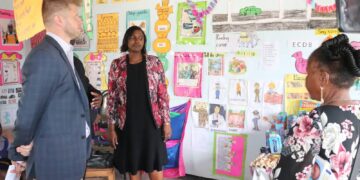


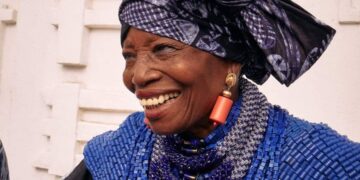
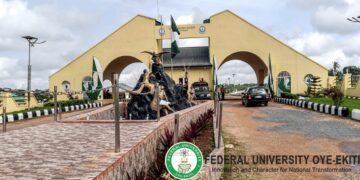






















































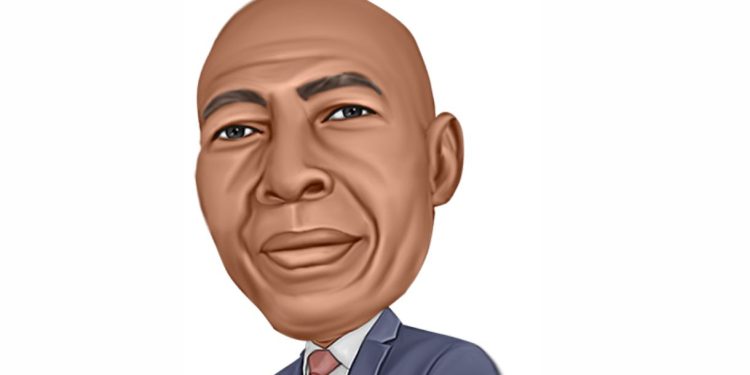




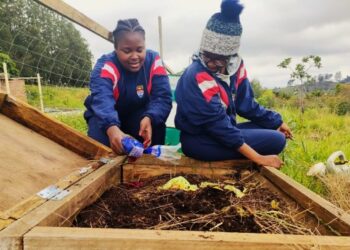


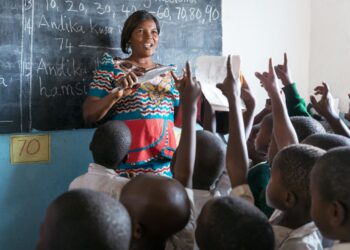

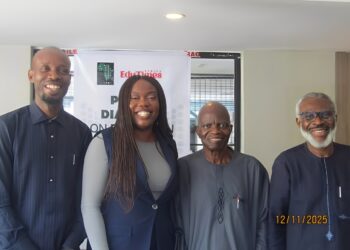










 EduTimes Africa, a product of Education Times Africa, is a magazine publication that aims to lend its support to close the yawning gap in Africa's educational development.
EduTimes Africa, a product of Education Times Africa, is a magazine publication that aims to lend its support to close the yawning gap in Africa's educational development.